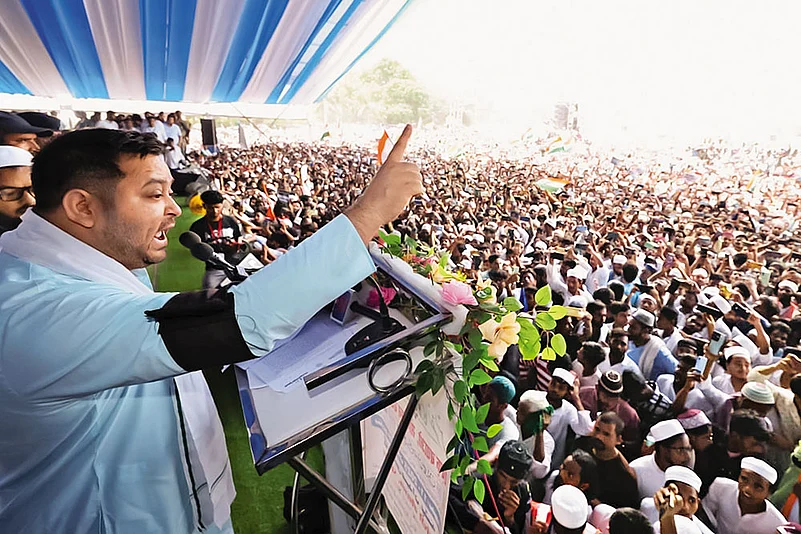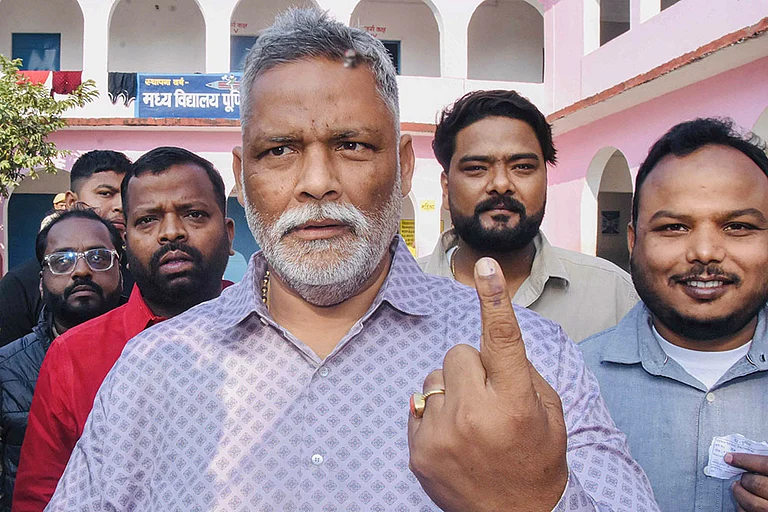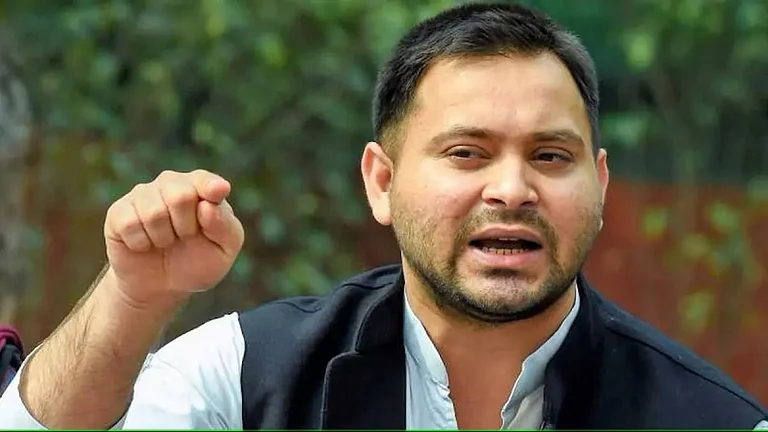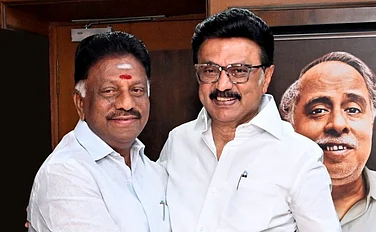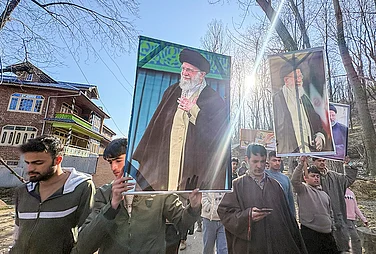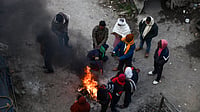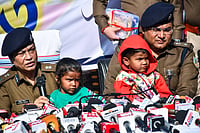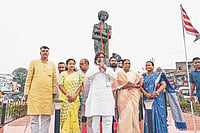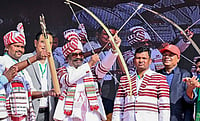On June 29, the second day of the Election Commission of India’s Special Intensive Revision (SIR) process of Bihar’s electoral rolls designed for completion just ahead of the October-November assembly election, Rashtriya Janata Dal (RJD) leader Tejashwi Yadav was addressing a rally organised by Muslim organisations at Patna’s Gandhi Maidan against the Waqf (Amendment) Act 2025. He told the crowd that the RJD would not implement the amended law in the state when it returns to power. The law would be “thrown into the dustbin”, he declared.
A miffed Bharatiya Janata Party (BJP), which rules Bihar in alliance with Chief Minister Nitish Kumar’s Janata Dal (United), coined the epithet “Namazwadi” to hurl at the Lalu Prasad scion, along with “Maulana” intended as a pejorative. The BJP claimed a Tejashwi-led government would impose Sharia law in Bihar, which explains what the party meant by “Namazwadi” and “Maulana”.
Being a Maulana is a really good thing, Tejashwi retorted, as a Maulana is a scholar. “Ever since the Waqf protest rally at Gandhi Maidan, the BJP’s sycophants and RSS members in Delhi have been constantly abusing me. They are calling me ‘Namazwadi’, and sometimes ‘Maulana’. These people are petty and ignorant,” he said.
With this war of words, the electoral discourse, so far focused on the ruling and opposition parties’ weaknesses in Bihar, has taken a sharp sectarian turn, centring around references to “Samajwad vs Namazwad”, the Sharia and other tropes of communal politics. While Tejashwi’s fiery speech targeting the BJP and the central government at the ‘Waqf Bachao, Samvidhan Bachao’ (save Waqf, save the Constitution) rally clearly aimed to consolidate the minority votes, the BJP has in response attempted polarisation by interpreting Tejashwi’s support for Muslim opposition to the amended law as “appeasement” of the community. As the minorities unite, analysts suggest the majority, too, may be mobilised as a consequence—a tactic of which the BJP is seen as an expert.
Both the BJP and the JD(U) accuse the RJD of playing Muslim vote-bank politics. However, the RJD denies any such intent. “Is being a Namazwadi a crime?” asks RJD spokesperson Jayant Jigyasu. “Is praying to Jesus a sin? Is practising Jainism or Buddhism wrong? Every citizen has the right to live with their faith just like others have the right to worship in temples. If we speak up for the rights of a community, how does that become vote-bank politics? The real dividers are those who spread hate whether it’s election season or not.” According to Jigyasu, the RJD believes in moving Bihar forward with people of all religions and castes, unlike the BJP, which he claims practises discrimination.
Following Tejashwi’s statement at the rally, the BJP held two back-to-back press conferences to attack the RJD. First, BJP MP Sudhanshu Trivedi branded Tejashwi a Namazwadi and advocate of Sharia law, and the next day national spokesperson Gaurav Bhatia echoed the same and even suggested Tejashwi should move to Pakistan. This mirrors a 2020 remark by BJP minister Giriraj Singh, who said those who don’t vote for Prime Minister Narendra Modi should be sent to Pakistan. “BJP leaders are speaking the language of ignorance,” says Jigyasu. “Is this what they call cultured speech? No responsible citizen who respects democracy and the Constitution would talk like this.”
Though the RJD and its allies are defending Tejashwi’s remarks against the Waqf law, analysts warn the Opposition could be harmed by the BJP’s shift towards “Samajwad vs Namazwad” rhetoric. Political commentator Prem Kumar Mani believes both the RJD and the BJP are losing balance in their rhetoric. “With his comments on Namazwad, Maulana and Waqf, Tejashwi has invited the BJP to play to its strength, which is communal politics. In trying to unite the minorities, he risks uniting the majority, which could benefit the BJP.” Mani believes the RJD should avoid such statements, noting the Muslims are already inclined to vote for the INDIA bloc (RJD, Congress, the Left parties), even without such aggressively overt support that could offer the BJP a chance to trigger Hindu-Muslim polarisation.
However, even as the BJP attacks the RJD for allegedly doing “Namazwadi”, instead of “Samajwadi” (socialist), politics, some senior BJP leaders have advocated for the removal of the words “secularism” and “socialism”, which had been added to the Preamble of the Constitution with the 42nd Amendment Act during the Emergency in 1976. This does not stop the saffron party from using these very terms to target the Opposition in Bihar. It’s no surprise as politics in the state have long revolved around its legacy as the land of Jayaprakash Narayan’s (JP) socialist school of thought—both Lalu and Nitish are its products, as are several leaders of the Jan Sangh (precursor to the BJP), which, too, emerged from the JP movement.
The JD(U), while distancing itself from this debate, brands Tejashwi’s remarks as “appeasement politics”. “Tejashwi’s comments aren’t about Muslim welfare but just vote politics,” says spokesperson Rajeev Ranjan Prasad. “The Muslims will not fall for this attempt to mislead people, as many in the community want to see a National Democratic Alliance (NDA) government led by Nitish, who they see as a secular leader. Under his leadership, Waqf properties will not be harmed.”
The NDA and INDIA bloc parties have continued their back-and-forth over the recent months. While the BJP and the JD(U) label Lalu’s 15-year rule as “jungle raj”, Nitish’s 20 years in power, though less criticised for governance, have often been questioned on ideological grounds. Until recently, the discourse was about development. However, the past week has seen increasing polarisation, now painted with a communal tone.
Unlike in Uttar Pradesh, in Bihar the BJP lacks a strong face and backward caste support, and has long relied on Nitish as a dominant OBC leader. When Nitish broke his 17-year alliance with the BJP in 2015 and joined hands with Lalu, even the so-called Modi wave failed to bring the saffron party to power in Bihar. The BJP cannot come to power on its own no matter how much it tries to play the Hindu-Muslim card, says veteran journalist Faisal Anurag, who argues the party’s return to divisive politics is due to its earlier strategy centred around the “Operation Sindoor” failing to deliver electoral traction.
The momentum around the BJP’s campaign based on the success of Operation Sindoor has significantly slowed down. One reason cited is the lack of positive feedback. PM Modi, who began his speech on May 30 in Vikramganj (Shahabad) with Operation Sindoor and spoke about it for 20 minutes, didn’t even mention it on June 20 in Siwan.
“You can’t cook in a wooden pot twice,” he says. “The BJP knows Hindu-Muslim politics won’t work any longer. Look at the 2024 general elections in which it couldn’t even bag 250 seats. In Jharkhand, too, the party crossed all limits in communalism and still faced one of its worst defeats.”
While the RJD and the Congress believe “Samajwad vs Namazwad” is a communal diversion by the BJP from Bihar’s real issues such as employment, migration, education and healthcare, BJP spokesperson Prem Ranjan Patel contends that the two opposition parties are trying to replace nationalism and socialism with ‘Namazwad’. “The amended Waqf law was passed after extensive consultations and proper legal procedures in Parliament. Saying it should be thrown into the dustbin is tantamount to rejecting the Constitution. Hence, it’s being said these parties want to bring Namazwad to Bihar for the sake of their vote bank,” says Patel.
Clearly, the battlelines have been drawn sharply on Bihar’s electoral terrain even as it faces an unprecedented situation with the Election Commission’s revision of electoral rolls just ahead of assembly polls, requiring all voters not listed in the 2003 rolls to submit fresh documents proving their eligibility. The Opposition alleges the exercise could disenfranchise sections of the electorate in a partisan manner favouring the ruling alliance, and the Association for Democratic Reforms, in a July 5 writ filed before the Supreme Court, said it violated the “right to vote of lakhs of voters…more particularly from marginalised communities (such as SCs, STs and migrant workers)”.
MORE FROM THIS ISSUE
Md Asghar Khan is senior correspondent from Jharkhand







